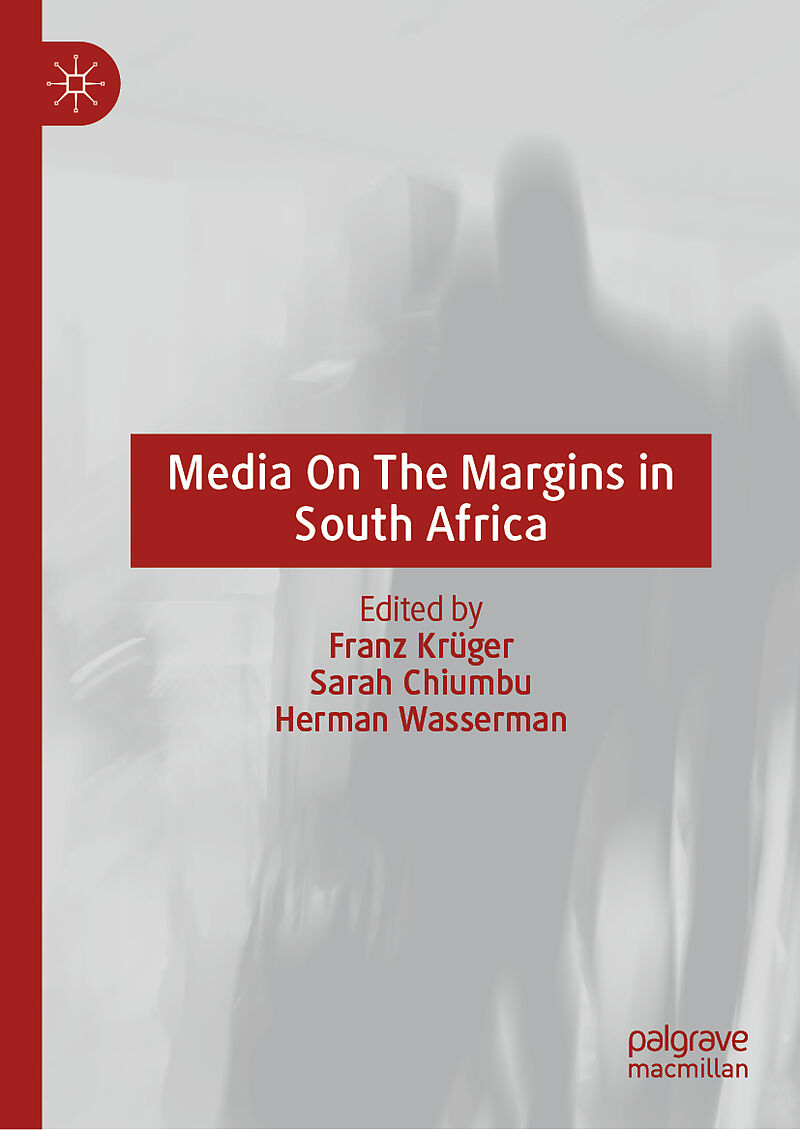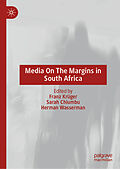

Media On The Margins in South Africa
Beschreibung
Chapters 1, 2, 4 and 5 are available open access under a Creative Commons Attribution-NonCommercial-NoDerivatives 4.0 International License via link.springer.com. Community media in South Africa plays a crucial role in providing platforms for local voices, fo...Format auswählen
- Fester EinbandCHF 228.45
Wird oft zusammen gekauft
Andere Kunden kauften auch
Beschreibung
Chapters 1, 2, 4 and 5 are available open access under a Creative Commons Attribution-NonCommercial-NoDerivatives 4.0 International License via link.springer.com.
Community media in South Africa plays a crucial role in providing platforms for local voices, fostering community engagement, and addressing issues relevant to specific communities, enabling marginal groups to take up their role as citizens. They also help to overcome information inequalities that mirror and reinforce wider socio-economic inequalities. The book examines the state of local and community media in South Africa through empirical, analytical, and theoretical inquiry. Using a range of methodological approaches, it addresses print, broadcast, and other media in South Africa while addressing many seldom-asked questions pertaining to the role of the state, local power dynamics, business strategies, content, and human factors. Because of the historical significance of community radio in South Africa, the volume emphasizes this type of community media.
Autorentext
Franz Krüger is Associate Professor in journalism at the NLA Høgskolen in Norway, and associate researcher with the Wits Centre for Journalism in Johannesburg and Deputy Press Ombud with the SA Press Council. He was founding director of the Wits Radio Academy as well as head of Wits Journalism. Krüger is the author of Black, white and grey: Ethics in South African journalism (2004), The radio journalism toolkit (2006), co-author of The healthy community radio station (2013) and has written many scholarly articles, book chapters, policy papers and other articles.
Sarah H Chiumbu is an Associate Professor in the Department of Communication and Media, School of Communication at the University of Johannesburg. Before joining the University of Johannesburg, she was Senior Research Specialist in the Human and Social Development Research Programme at the Human Sciences Research Council (HSRC). Recent book publications include a book on media and decoloniality co-edited with Mehita Iqani (Media Studies: Critical African and Decolonial Approaches. Oxford University Press, 2019), Radio, Public Life and Citizen Deliberation in South Africa (Routledge, 2021) and Television in the Digital Age: Disjuncture, Continuities and Prospects (Palgrave Macmillan, 2021) both co-edited with Gilbert Motsaathebe and Converged Radio, Youth and Urbanity in Africa - Emerging trends and perspectives (Springer, 2023), co-edited with Stanley Tsarwe.
Herman Wasserman is Professor of Journalism and Director of the Centre for Information Integrity in Africa at Stellenbosch University, South Africa. His books include Tabloid Journalism in South Africa; Media, Geopolitics, and Power; Media, Conflict and Democracy in Africa, and Disinformation in the Global South. He is Editor-in-Chief of the journal African Journalism Studies. Wasserman is a Fellow of the International Communication Association, an elected member of the Academy of Science of South Africa and a South African National Research Foundation A-rated researcher.
Inhalt
Chapter 1: Introduction.- Section 1: Foundations.- Chapter 2: Beyond local, alternative and community :Conceptual considerations about media on the margins.- Chapter 3: Media on the margins: A survey of the South African landscape.- Chapter 4: Matrix , nexus and ecosystem : Navigating the place and role of a community news organisation in civic communication.- Section 2: Policies, Money and Power.- Chapter 5: Talking directly to citizens: The role of the South African state in building local and community media.-Chapter 6-Hand to mouth:Business models in SA local and community media.-Chapter 7-South African community TV:Perseverance in the face of uncertain policy, regulatory and operational conditions.- Section 3: Content.- Chapter 8: Local content on community radio in SA: Principle and policy versus audience preferences, resources and feasibility.- Chapter 9: Promoting local voices: A content analysis of print community newspapers in South Africa.- Section 4: People.- Chapter 10: The human factor:Mission, vision and motivation in community media leadership.- Chapter 11: AmaVolontiya:Between the search for opportunity and planting the seeds of a solidarity economy.- Section 5: New Challenges.- Chapter 12: Digital technologies and community radio in South Africa: Critical perspectives on access, participation and sustainability.- Chapter 13: Navigatiresond to false information in their reporting.
